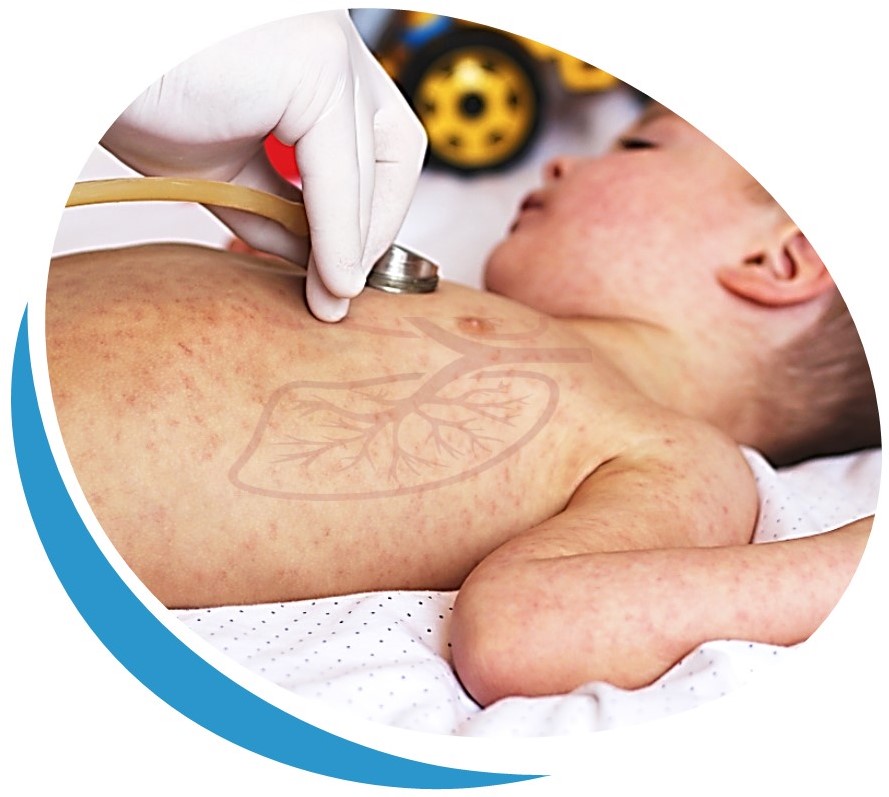A recent and important
publication on COVID-19 (SARS-CoV2)
It shows the largest research work in the world, on patients with the (COVID-19) infection and that was published in
the BMJ newspaper; which indicates that young people and adolescents are less likely than adults to contract the (COVID-19) in a serious way or transmit the disease.
Obesity, ethnicity or black race and being less than a month old are factors that obtain the risk of a child being admitted to intensive care with the condition,
according to this report.
The findings also identify new symptoms of a Severe Inflammation Syndrome known as (MIS-C | Multisystemic Inflammatory Syndrome in Children) and increasing
significantly the risk that minors with (COVID-19) need to be cared for in intensive care units.
Analysts require an update of the meaning before the World Health Organization (WHO), of the multisystemic inflammatory syndrome in children (MIS-C) to
help doctors and specialists distinguish more children with the condition and improve their treatment.
The group, promoted by specialists from the Universities of Edinburgh and Liverpool, Imperial College London and the Royal Hospital for Children in Glasgow, United Kingdom,
selected 651 Children and young people aged 19 or younger who have been admitted to a medical clinic previously diagnosed with (COVID-19).
The review is powered by (ISARIC4C), a global gathering of physicians trying to prevent death from respiratory diseases, and included 138 medical clinics in
England, Wales and Scotland. The examination incorporates the surprising 66% admitted to the clinic with the disease.
IT IS NOT NORMAL FOR YOUNG PEOPLE TO END UP IN A HOSPITAL OR CLINIC
The findings recommend that it is rare for both children and youth to end up in the clinic with (COVID-19). In fact, they represent less than 1% of
patients analyzed in the 'ISARIC' study.
The ordinary period of these hospitalized youths was five years. About 42% of the patients had, in any case, another condition, the most recognized and
including neurological conditions and asthma.
(On average 18% of Hospitalized Children and Youth were admitted to Intensive Care.)
The number of Children and Youth who died from (COVID-19) was generally low (Six in total) compared to adult deaths. Three children
who died were babies with different genuine medical problems. The other three Youths were between 15 and 18 years old and also had genuine medical problems.
About 18 of the hospitalized children and young people were admitted to an intensive care unit. Specialists affirm that Children and Youth who run older
The risk of requiring concentrated care are those who are less than a month old and those between 10 and 14 years old.
As in adults, obesity and dark race were also found to be higher risk factors.
The research also distinguished 52 patients who had (MIS-C), what is known as Multisystemic Inflammatory Syndrome in Children (MIS-C), a new condition. The scientists
found that, on multiple occasions, these patients had to be admitted to intensive care to be treated.
WERE DISCOVERED NEW SYMPTOMS IN CHILDREN WITH
( MIS-C ) and ( COVID-19 )
Manifestations found for the most part in people with (MIS-C) include:
- Conjunctivitis,
- Rash or
- Gastrointestinal Problems, | for example: (Stomach Pain, Diarrhea or Intestinal Pain)
This investigation also discovered new manifestations of (COVID-19)
in Children and Young with (MIS-C), including:
- Migraines,
- Physical Slowness,
- Muscle Aches, and
- Sore Throat.
The research also found that the number of platelets, a segment of the blood compromised with clotting, was much lower in the blood of children with (MIS-C)
than in those who did not have the disease. The combination of manifestations and low platelet levels may be significant in distinguishing Children with (MIS-C) who may
feel sick, say the specialists.
This review was supported by UK Research and Innovation (UKRI) and the Department of Health and Social Care, through the National Research Institute
in Health (NIHR) as a component of the UK government's COVID-19 Research Rapid Response United.
Olivia Swann, lead author and clinical professor of pediatric infectious diseases at the University of Edinburgh, noted that "Scientists regularly need
highlight large numbers of patients in your research; however, we must emphasize that children are only a small amount of level of all commits
of (COVID-19) from the UK in our examination and that genuine ailment was rare."
On the other hand, Louisa Pollock, adviser on pediatric infectious diseases at the Royal Hospital for Children, Glasgow, emphasizes that "Parents should feel calm
with the results of this research stating that not many young people were genuinely influenced by (COVID-19). As children return to class and during
winter months, it is significant that we continue to control COVID-19 in children, "she suggests.
As for him, Calum Semple, professor of children's health and sprout medicine and pediatric respiratory consultant at the University of Liverpool, notes that his work
has provided new information on this new disease (MIS-C) "That will help manage this rare but genuine condition. Parents can now be guaranteed
that extreme (COVID-19) is exceptionally rare in children."
(Original Source | The bmj)
ORIGINAL SOURCE
 Multisystem inflammatory syndrome
Multisystem inflammatory syndrome OTHER SYMPTONS(Can Be)
OTHER SYMPTONS(Can Be) EMERGENCYWARNING SIGNS OF (MIS-C) INCLUDE IF YOU CHILDREN FEEL
EMERGENCYWARNING SIGNS OF (MIS-C) INCLUDE IF YOU CHILDREN FEEL